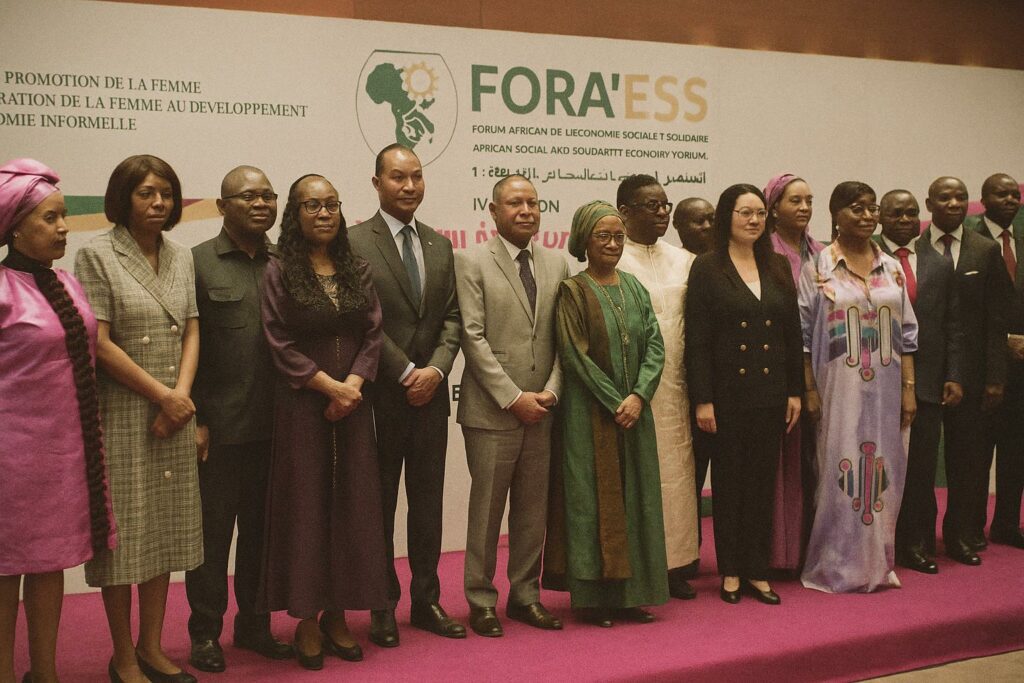Brazzaville Readies an African Convergence
In a ceremony that blended diplomatic decorum with entrepreneurial optimism, Minister of the Promotion of Women and the Informal Economy Ines Nefer Ingani inaugurated the preparatory committee for the second African Forum on Social and Solidarity Economy. The meeting, held on 9 July 2025 in the heart of Brazzaville, confirmed that the Congolese capital will host delegates from at least forty African and partner states between 20 and 24 January 2026. While the first edition in Yaoundé highlighted proof-of-concept initiatives, the forthcoming gathering promises to institutionalise a continental roadmap, thereby giving Brazzaville a symbolic gravitas that extends beyond the banks of the Congo River.
A Quiet but Determined Government Strategy
Officials close to the Prime Minister’s office describe the forum as a signature component of President Denis Sassou Nguesso’s diversification agenda, complementing ongoing reforms in hydrocarbons, forestry and digital services. By foregrounding the social economy, the government seeks to harness activities that currently contribute an estimated 40 % of national GDP yet remain undercapitalised. The executive’s calculus is simple: legitimacy at the grassroots can be strengthened when market access, credit lines and cooperative governance converge under a recognisable policy label.
From Informal Resilience to Institutional Recognition
The social and solidarity economy occupies an ambiguous institutional space across Africa. Street vendors, savings groups and mutual-aid societies all perform economic functions, but statistics agencies frequently overlook their aggregate impact. The International Labour Organization classifies over 66 % of total employment in sub-Saharan Africa as informal (International Labour Organization, 2023). By offering an intergovernmental platform, Fora’ess seeks to transform these actors from anecdotal case studies into a recognised pillar of macroeconomic planning.
Gender Perspectives and the Minister’s Agenda
Minister Ingani insists that women’s economic agency will remain the forum’s leitmotif. Speaking to local media, she argued that ‘the creativity of market women, seamstresses and agri-processors embodies resilience that macro-economists only describe in abstract terms’. Planned side events include a showcase of cooperatives owned by women ex-combatants from Pool Department, underscoring the administration’s resolve to link economic inclusion to social cohesion. UN Women’s regional office has signalled its intention to co-sponsor technical panels on access to finance, adding further multilateral weight to the agenda.
ILO’s Decent Work Resolution as Guiding Compass
At the regulatory level, the forum will revisit the 2022 ILO resolution on decent work in the social and solidarity economy, a document that commits member states to fair wages, social protection and democratic governance structures. Malick Diop, president of the Fora’ess network, suggests that Brazzaville could pilot an accreditation mechanism allowing cooperatives to display a ‘decent work’ seal, thereby improving consumer confidence and attracting impact investors wary of reputational risk.
Regional Continuity After Yaoundé
Yaoundé’s inaugural edition yielded a continental steering committee and a call for rotating host cities. Congo-Brazzaville’s selection as co-organiser reflects both geographic logic—bridging Central and West African economic communities—and diplomatic goodwill earned during recent mediation efforts within ECCAS. The January meeting will therefore operate as much in the realm of soft power as in that of economic policy, reinforcing Brazzaville’s longstanding role as a venue for pan-African dialogue since the 1960s.
Financing Mechanisms and Cooperative Models
Preparatory documents reviewed by this journal outline a blended-finance facility of 120 million USD, to be announced during the ministerial round-table. The proposed structure combines concessional loans from the African Development Bank with domestic microfinance resources and diaspora bonds. Analysts at the Economic Commission for Africa argue that such instruments can reduce borrowing costs for cooperatives by up to four percentage points, a margin that can shift subsistence activities into scalable enterprises. Whether prudential regulations will evolve quickly enough remains a pivotal question for central-bank technocrats.
Diplomatic Implications for Central Africa
Foreign missions in Brazzaville interpret the forum as a litmus test for Congo’s capacity to convene complex, multi-stakeholder events in the post-pandemic era. Japanese and Brazilian embassies have already requested pavilion space, citing interest in triangular cooperation on agro-ecology. The European Union delegation, for its part, views Fora’ess as complementary to Global Gateway investments, signalling a convergence of strategic narratives around inclusive growth. Such attention confers diplomatic capital that can bolster Congo’s position during negotiations on climate finance and infrastructure.
Paths Ahead for a Resilient Congolese Informal Sector
If successful, the January conclave may crystallise a policy consensus: that the informal sector is not a developmental nuisance to be normalised away but a reservoir of ingenuity that warrants targeted support. The government’s willingness to host Fora’ess reflects confidence in domestic stability and a desire to project constructive leadership in Central Africa. For observers, the true measure of success will emerge in 2027 budget debates, where line ministries will either integrate social-economy metrics or revert to conventional fiscal orthodoxies. Until then, Brazzaville prepares, mindful that the world will be watching as solidarity seeks its market.

